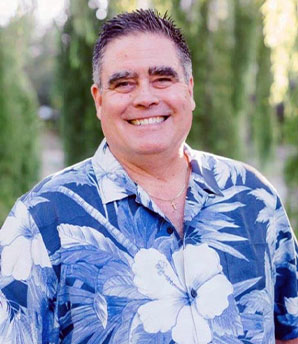Our custom dentures in Rohnert Park are an excellent way to replace all your missing teeth efficiently. These specially designed prosthetics are fitted for both comfort and esthetics, providing you with results you can feel confident about showing off each day.
Full Dentures (“Plates”)
If you need to restore all teeth in one arch (your upper or lower jaw), a full denture or “plate” may be one of your best options. Dentures provide both efficiency and affordability, making them one of the most traditional choices for smile restoration.
Upper dentures cover the entire roof of your mouth, creating a seal between your prosthesis and gum tissue. Lower dentures follow the contour of your jaw so as not to impede your tongue.
Adjusting to a new denture can take a few days of practice. Give yourself plenty of grace, eat smaller bites of food, and make a point to speak to yourself in the mirror as you learn to adapt to your custom prosthesis.

Partial Denture Designs
A partial denture is used when you still have several healthy teeth that don’t need to be extracted. Instead, the removable appliance snaps into place around your natural teeth, only replacing the missing ones.
Depending on your preferences and the number of teeth missing, partial dentures can be made from a variety of different materials. Some feature a reinforced chrome base, while others are made of more flexible acrylic.
Implant-Supported Dentures
In addition to traditional removable dentures, Sonoma Smiles also offers implant-supported denture options.
Denture Care And Maintenance
To get the most out of your new appliance, follow these important steps:
- Remove your denture or partial nightly. Do not ever sleep with your appliance on.
- Soak your appliance in an effervescent denture cleanser to help loosen the stain and plaque deposits.
- Each morning, brush your denture thoroughly before putting it back into your mouth.
- Remember to clean your mouth at least twice a day with an extra-soft toothbrush or washcloth to help prevent infections.
- Bring your denture to your regular checkups for us to evaluate the way it fits.
- If anything rubs or feels uncomfortable, be sure to let us know. Occasional adjustments or relines may be necessary.

Learn More
Are dentures right for you? Contact Sonoma Smiles to reserve an appointment with our denture specialist or cosmetic dentist by calling (707) 868-0666 today.


